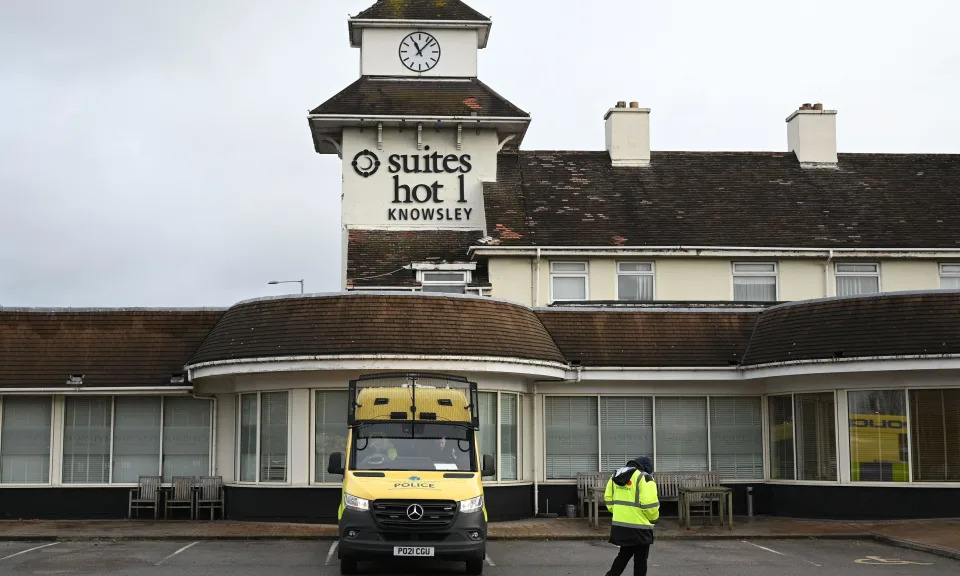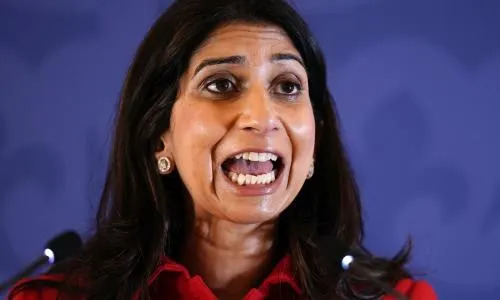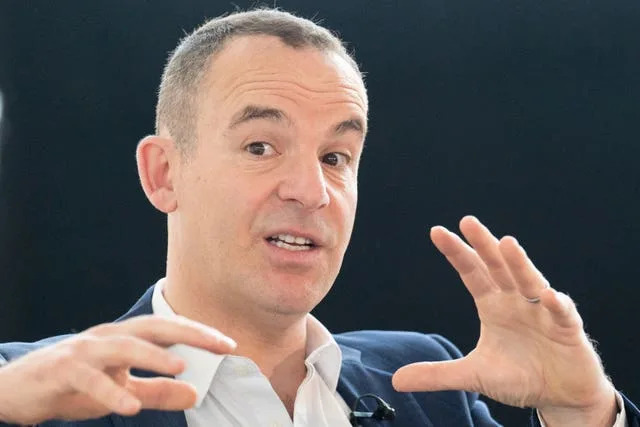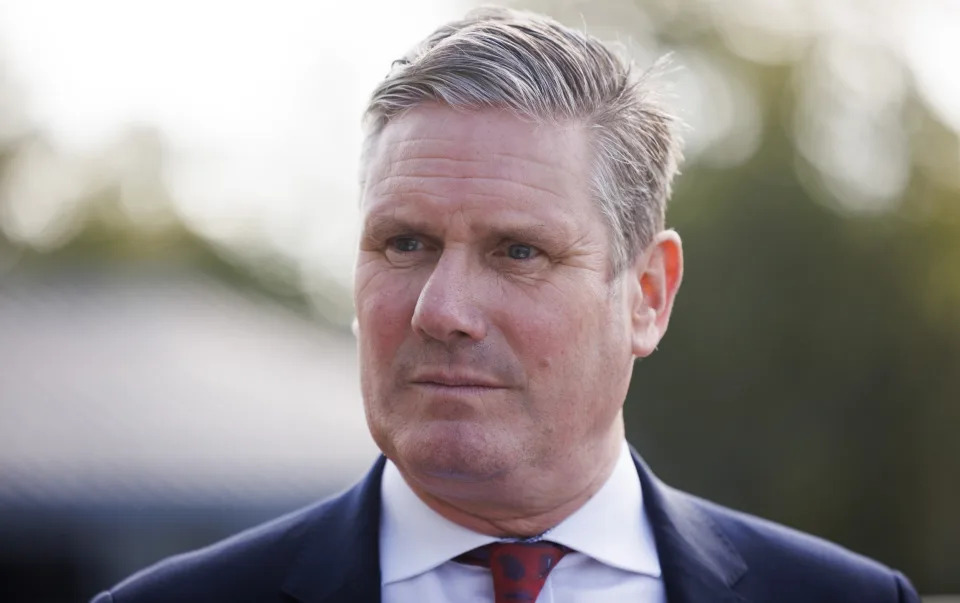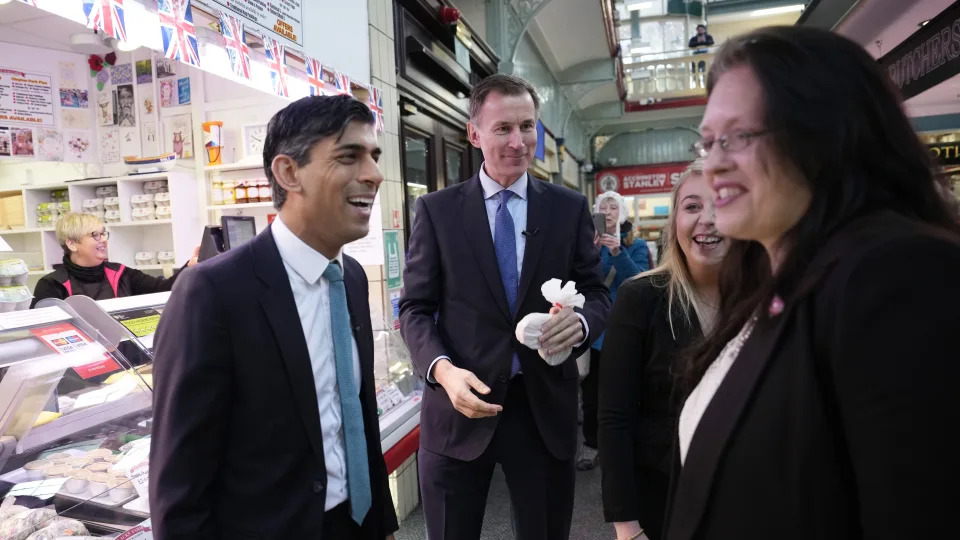Six cabinet ministers set to lose seats in Tory blue wall rout, new poll shows
Archie Mitchell
Fri, 29 September 2023
Six cabinet ministers are set to lose their seats at the next general election as the Conservatives come under assault in the so-called blue wall of safe Tory seats, a new poll shows.
The Labour party is expected to storm home with a majority of 90 seats, and 39 per cent of the vote, according to a poll by Stonehaven.
The ministers who would be unseated are chancellor Jeremy Hunt, party chairman Greg Hands and justice secretary Alex Chalk.
Welsh secretary David TC Davies is also expected to be unseated by Labour as well as chief whip Simon Hart and international development minister Andrew Mitchell, the poll says.
Senior Tories including former business secretary Sir Jacob Rees-Mogg are also expected to lose out at the election.
The poll, conducted by The Times, highlights the vulnerability of the Tories in their traditional southern heartlands, with the party haemorrhaging support to the Liberal Democrats under leader Sir Ed Davey.
It shows Rishi Sunak on course to win the fewest seats of any Conservative leader since William Hague in 2001, with just 196 seats. Labour is set to win 372 seats, the poll showed.
The poll comes amid fears that widespread tactical voting would see the Tories return their worst election result in more than a century.
With Mr Sunak lagging Sir Keir Starmer in the polls, fears are mounting that the Tories could be facing a 1997-like defeat.
In 1997, seven cabinet ministers including Michael Portillo and Sir Malcolm Rifkind lost their seats.
But, with key by-elections coming up,Labour and the Liberal Democrats could allow the Tories to win the Mid Bedfordshire by-election by splitting the vote, according to polling guru Professor Sir John Curtice.
Anti-Tory campaigners have called on opposition leaders Sir Keir and Sir Ed Davey to agree on a “non-aggression” pact in the blue-wall seat vacated by Nadine Dorries.
The Conservative Leadership Hopefuls On Manoeuvres At Tory Conference
Ned Simons
Updated Fri, 29 September 2023
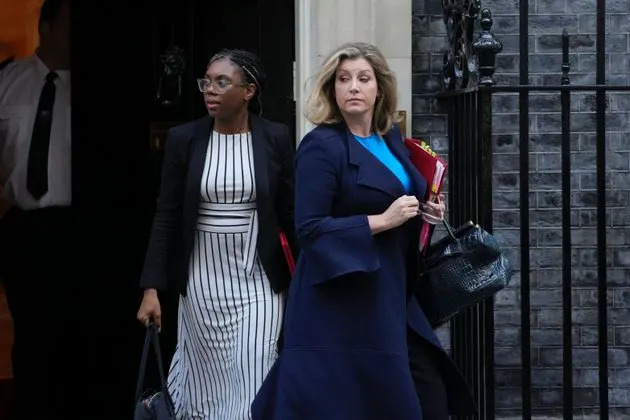
Rishi Sunak heads to Manchester this weekend to rally the Tory troops one last time before next year’s general election,
The prime minister can be expected to use his big speech on Wednesday lunchtime to set out his case for why the country should give the Conservatives yet another term in power.
But given the polls, many believe the election is already lost and all eyes will be on Sunak’s possible successor as party leader.
A study of the Tory conference agenda shows Kemi Badenoch - the grassroots Tory favourite - will be attending four events over the course of the four days.
The business secretary is due at a series of drinks receptions including one hosted by the Institute of Economic Affairs think-tank which influenced much of Liz Truss’ thinking.
And rather than lying low, Truss herself will be taking part in a rally during the gathering.
The former prime minister is unlikely to stand for party leader again, but is widely seen to be positioning herself to play a key role behind the scenes in the upcoming contest.
A Labour source said: “Sunak isn’t even in control of his own cabinet, let alone the country.
“He’s in the pocket of Liz Truss and her economy crashing wreckers because he is too weak stand up to them. The country is crying out for change - but all the Tories are focused on is their own internal contests.”

Penny Mordaunt could fancy another attempt at the leadership of the party.
Penny Mordaunt could fancy another attempt at the leadership of the party.
Penny Mordaunt - who came close to pushing Sunak to a vote of the Tory membership in the last contest - is set to appear at three events.
The Commons leader is also attending a book signing and will speak from the main conference stage before Sunak on the final day of the conference.
Fresh from her high-profile anti-immigration speech in the US, Suella Braverman is only down to appear at one event - hosted by the Common Sense Group of Tory MPs.

Suella Braverman is already making a pitch to the Tory right.
Suella Braverman is already making a pitch to the Tory right.
Michael Gove has a busy few days with five events in his diary. And while, like Truss, the levelling up secretary will likely not run to succeed Sunak, he will be an influential voice in any leadership race.
But Jeremy Hunt, the chancellor, is keeping a much lower profile, appearing at just one event.
Jon Ashworth MP, Labour’s shadow paymastergeneral, said the events showed “even Tory ministers know the game is up”.
“They’re pitching themselves to Tory members for the next leadership contest because they know weak Rishi Sunak hasn’t got what it takes,” he said. “While the Tories fight among themselves, Labour will give Britain its future back.”
Ned Simons
Updated Fri, 29 September 2023

Rishi Sunak heads to Manchester this weekend to rally the Tory troops one last time before next year’s general election,
The prime minister can be expected to use his big speech on Wednesday lunchtime to set out his case for why the country should give the Conservatives yet another term in power.
But given the polls, many believe the election is already lost and all eyes will be on Sunak’s possible successor as party leader.
A study of the Tory conference agenda shows Kemi Badenoch - the grassroots Tory favourite - will be attending four events over the course of the four days.
The business secretary is due at a series of drinks receptions including one hosted by the Institute of Economic Affairs think-tank which influenced much of Liz Truss’ thinking.
And rather than lying low, Truss herself will be taking part in a rally during the gathering.
The former prime minister is unlikely to stand for party leader again, but is widely seen to be positioning herself to play a key role behind the scenes in the upcoming contest.
A Labour source said: “Sunak isn’t even in control of his own cabinet, let alone the country.
“He’s in the pocket of Liz Truss and her economy crashing wreckers because he is too weak stand up to them. The country is crying out for change - but all the Tories are focused on is their own internal contests.”

Penny Mordaunt could fancy another attempt at the leadership of the party.
Penny Mordaunt could fancy another attempt at the leadership of the party.
Penny Mordaunt - who came close to pushing Sunak to a vote of the Tory membership in the last contest - is set to appear at three events.
The Commons leader is also attending a book signing and will speak from the main conference stage before Sunak on the final day of the conference.
Fresh from her high-profile anti-immigration speech in the US, Suella Braverman is only down to appear at one event - hosted by the Common Sense Group of Tory MPs.

Suella Braverman is already making a pitch to the Tory right.
Suella Braverman is already making a pitch to the Tory right.
Michael Gove has a busy few days with five events in his diary. And while, like Truss, the levelling up secretary will likely not run to succeed Sunak, he will be an influential voice in any leadership race.
But Jeremy Hunt, the chancellor, is keeping a much lower profile, appearing at just one event.
Jon Ashworth MP, Labour’s shadow paymastergeneral, said the events showed “even Tory ministers know the game is up”.
“They’re pitching themselves to Tory members for the next leadership contest because they know weak Rishi Sunak hasn’t got what it takes,” he said. “While the Tories fight among themselves, Labour will give Britain its future back.”
Opinion
I’ve got news for Rishi Sunak: he no longer leads the conservative party
Jonathan Freedland
Fri, 29 September 2023
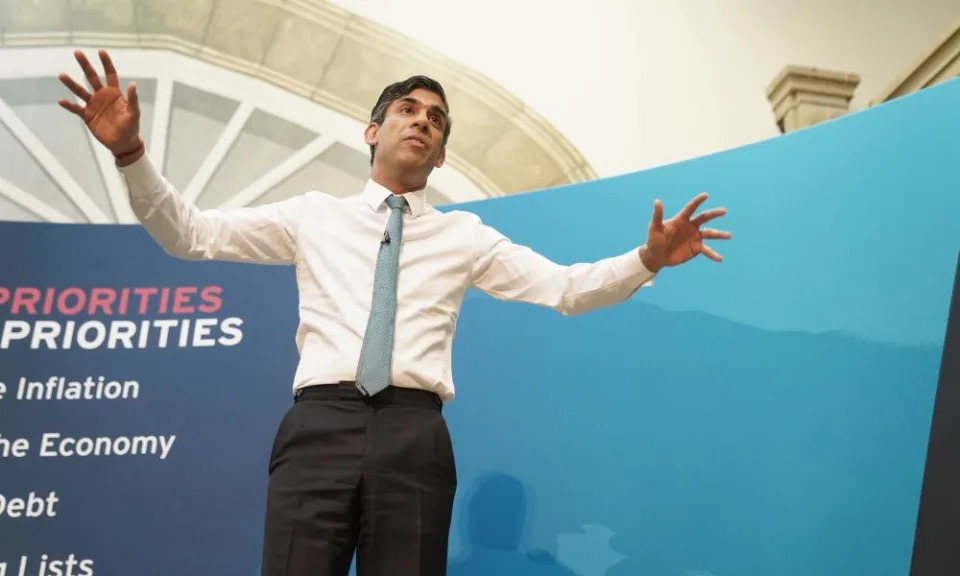
Photograph: Owen Humphreys/PA
What would it be like if Britain had a conservative party? Odd to ask that now, on the eve of the Conservative party conference, but the coming week is only likely to make the question more pressing. Because the organisation that will gather in Manchester is, despite its name, something else entirely.
The mislabelling has been clear for some time, but fresh evidence came just this week. Start with the latest, first reported in the Guardian: a new “plan for motorists” that will limit the number of 20mph zones and favour drivers over those who use the bus.
The politics of this are not mysterious. Rishi Sunak is betting that, after an Uxbridge byelection win apparently fuelled by unhappiness among car owners at clean air measures, there’s a motorist vote to be exploited. It comes alongside Sunak’s weakening last week of the net-zero targets Britain had set itself – and Wednesday’s green light to the development of the biggest untapped oilfield in the UK, Rosebank in the North Sea, which Caroline Lucas called “the greatest act of environmental vandalism in my lifetime.”
Conviction conservatives should be as appalled by those decisions as the most committed green activist. The clue is in the name. Conservatives used to pride themselves on conserving not only long-established institutions – monarchy, church, military – but the natural world, too. The best conservative philosophers always regarded humankind as custodians of the Earth, with a responsibility – even a sacred duty – to protect it. Yet now, a single, narrow victory in Uxbridge, and the resultant hope of salvaging some votes from the expected wreckage of the next general election, is enough to prompt Conservatives to junk that obligation to the planet. So instead of encouraging more sustainable ways of getting around, they are going to push people back into polluting cars.

‘In Washington DC, Suella Braverman railed against migration and multiculturalism.’ Photograph: Stefan Rousseau/PA
And note the chosen method for this motorists’ plan, due for launch on Monday. Local councils are to be stripped of even the relatively modest power of making their own traffic arrangements. Yet localism, too, is meant to be a cherished conservative principle. There was a time when Conservatives couldn’t get through a speech without quoting, or misquoting, Edmund Burke’s affection for the “little platoons” and its imagined preference for local government over the central state. But today’s Conservatives are all too willing to trample over the local in pursuit of whatever electoral stratagem has been decided on at HQ.
Still, the most toxic departure from what should be unshakeable conservative values came in a speech delivered in Washington DC on Tuesday by Suella Braverman. The home secretary railed against migration and multiculturalism, describing the first as “an existential challenge” and the second as a failure. Naturally, liberals deplored it. But a genuine conservative would have been just as shocked.
Because Braverman had in her sights not just asylum seekers, but the European convention on human rights and the United Nations refugee convention of 1951. (She especially dislikes the way those documents protect gay people and women who fear discrimination.) These are binding agreements, treaty obligations entered into by the UK – and yet, when asked if the government would consider breaking from them if it did not get its way, Braverman refused to say that Britain would honour its commitments. Instead, she said the government would do “whatever is required”.
That violates what should be another core conservative principle: the rule of law. Talk to today’s disenchanted or former Tories and they’ll insist that even when Margaret Thatcher was at her least conservative, radically tearing up the postwar settlement, she had an unbending respect for the law.
She would hardly recognise this government, in which the likes of Braverman – like Thatcher, a lawyer herself – are ready to break commitments enshrined in law, domestic or international. Recall the unlawful prorogation of parliament or Brandon Lewis’s cheerful admission to the house that the internal market bill would “break international law in a very specific and limited way”. It’s tempting to think these were excesses of the Boris Johnson era, now passed. But Braverman’s speech – and Sunak’s indulgence of it – are proof that that sorry chapter has not ended.
Indeed, Sunak’s failure to defend the Commons, by refusing to cast a vote of censure against Johnson’s lies to the house, points to one more torching of conservative principle. Conservatives are meant to protect the sovereignty of parliament. Instead, they have made a mockery of it.
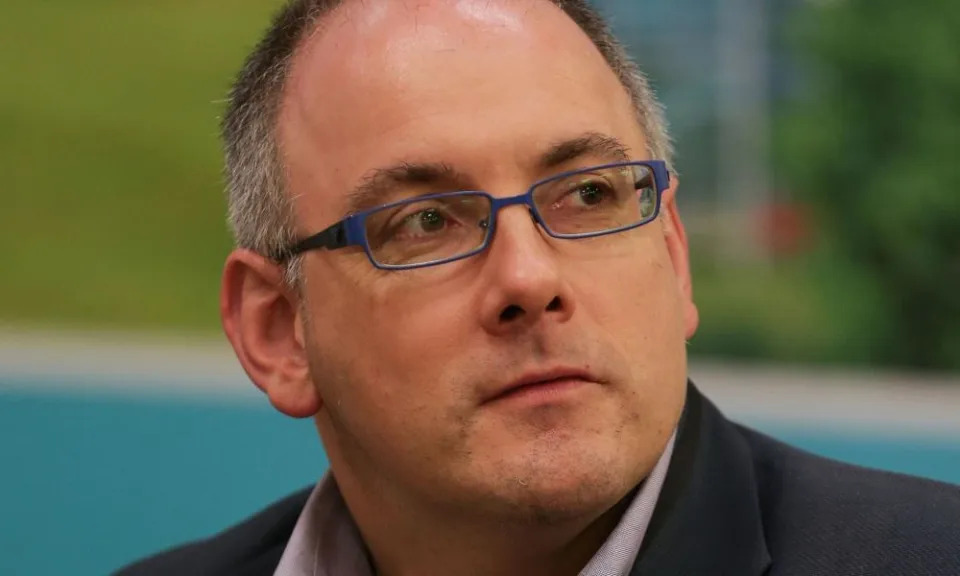
‘Essex MP Robert Halfon has suggested the Tories rebrand as the Workers party.’ Photograph: Daniel Leal-Olivas/PA
To be sure, the Conservative party has always adapted and evolved; that’s been the secret of its success. On economics, the party’s view of the state has shifted back and forth, between the shrink-the-state minimalism of a Thatcher or George Osborne and the big-spending activism of a Michael Heseltine or Johnson. But certain principles were meant to be enduring. And it’s those that have been abandoned.
What’s left is a new and different entity. It’s “become a kind of ersatz populist radical right party” is how professor Tim Bale, historian of the Conservatives, describes it. The old focus on economic management has given way to culture wars, with motorist v environmentalist the latest, supposedly anti-elite dividing line to be seized upon. Or as David Gauke, former justice secretary and editor of a new collection of essays, many by fellow Conservative exiles, put it when he and I spoke this week: for today’s Tories, “problems are there to be exploited, rather than to be solved”.
The simplest explanation for the shift is that politics in Britain – and across the democratic world – is in the midst of a realignment. If blue collar workers were once assumed to vote with the left for economic reasons, they might now just as easily align with the right for cultural ones. The hinge point in Britain was surely Brexit. For Bale, the Conservative party had long flirted with populism, but having spent much of the last decade defending itself from the party of the further right – first Ukip, then the Brexit party – something more serious has happened: “It’s become that party.”
All this creates a large void in the right half of the centre ground of British politics. That should be rich terrain for the Liberal Democrats, had they not chosen to pitch themselves as a second party of the centre-left. So Gauke and others sense an opportunity for Labour: to a disenchanted conservative, respectful of the planet and vigilant on the rule of law, Keir Starmer might just look the part.
As for the Tories themselves, honesty should surely compel them to rebrand. Not, perhaps, as the Essex MP Robert Halfon has suggested, as the Workers party – too Pyongyang – but as a People’s party, candidly admitting their own new, nationalist populist identity. Though maybe that would sound too European, too continental, to their ear.
In which case, here’s a more modest proposal: a change of logo, to an image that more accurately reflects the party they have become. The Conservatives should ditch the squiggly drawing of a tree, with its hint of reverence for nature, time and the past – and replace it with a bonfire, burning the whole lot down.
Jonathan Freedland is a Guardian columnist
I’ve got news for Rishi Sunak: he no longer leads the conservative party
Jonathan Freedland
Fri, 29 September 2023

Photograph: Owen Humphreys/PA
What would it be like if Britain had a conservative party? Odd to ask that now, on the eve of the Conservative party conference, but the coming week is only likely to make the question more pressing. Because the organisation that will gather in Manchester is, despite its name, something else entirely.
The mislabelling has been clear for some time, but fresh evidence came just this week. Start with the latest, first reported in the Guardian: a new “plan for motorists” that will limit the number of 20mph zones and favour drivers over those who use the bus.
The politics of this are not mysterious. Rishi Sunak is betting that, after an Uxbridge byelection win apparently fuelled by unhappiness among car owners at clean air measures, there’s a motorist vote to be exploited. It comes alongside Sunak’s weakening last week of the net-zero targets Britain had set itself – and Wednesday’s green light to the development of the biggest untapped oilfield in the UK, Rosebank in the North Sea, which Caroline Lucas called “the greatest act of environmental vandalism in my lifetime.”
Conviction conservatives should be as appalled by those decisions as the most committed green activist. The clue is in the name. Conservatives used to pride themselves on conserving not only long-established institutions – monarchy, church, military – but the natural world, too. The best conservative philosophers always regarded humankind as custodians of the Earth, with a responsibility – even a sacred duty – to protect it. Yet now, a single, narrow victory in Uxbridge, and the resultant hope of salvaging some votes from the expected wreckage of the next general election, is enough to prompt Conservatives to junk that obligation to the planet. So instead of encouraging more sustainable ways of getting around, they are going to push people back into polluting cars.

‘In Washington DC, Suella Braverman railed against migration and multiculturalism.’ Photograph: Stefan Rousseau/PA
And note the chosen method for this motorists’ plan, due for launch on Monday. Local councils are to be stripped of even the relatively modest power of making their own traffic arrangements. Yet localism, too, is meant to be a cherished conservative principle. There was a time when Conservatives couldn’t get through a speech without quoting, or misquoting, Edmund Burke’s affection for the “little platoons” and its imagined preference for local government over the central state. But today’s Conservatives are all too willing to trample over the local in pursuit of whatever electoral stratagem has been decided on at HQ.
Still, the most toxic departure from what should be unshakeable conservative values came in a speech delivered in Washington DC on Tuesday by Suella Braverman. The home secretary railed against migration and multiculturalism, describing the first as “an existential challenge” and the second as a failure. Naturally, liberals deplored it. But a genuine conservative would have been just as shocked.
Because Braverman had in her sights not just asylum seekers, but the European convention on human rights and the United Nations refugee convention of 1951. (She especially dislikes the way those documents protect gay people and women who fear discrimination.) These are binding agreements, treaty obligations entered into by the UK – and yet, when asked if the government would consider breaking from them if it did not get its way, Braverman refused to say that Britain would honour its commitments. Instead, she said the government would do “whatever is required”.
That violates what should be another core conservative principle: the rule of law. Talk to today’s disenchanted or former Tories and they’ll insist that even when Margaret Thatcher was at her least conservative, radically tearing up the postwar settlement, she had an unbending respect for the law.
She would hardly recognise this government, in which the likes of Braverman – like Thatcher, a lawyer herself – are ready to break commitments enshrined in law, domestic or international. Recall the unlawful prorogation of parliament or Brandon Lewis’s cheerful admission to the house that the internal market bill would “break international law in a very specific and limited way”. It’s tempting to think these were excesses of the Boris Johnson era, now passed. But Braverman’s speech – and Sunak’s indulgence of it – are proof that that sorry chapter has not ended.
Indeed, Sunak’s failure to defend the Commons, by refusing to cast a vote of censure against Johnson’s lies to the house, points to one more torching of conservative principle. Conservatives are meant to protect the sovereignty of parliament. Instead, they have made a mockery of it.

‘Essex MP Robert Halfon has suggested the Tories rebrand as the Workers party.’ Photograph: Daniel Leal-Olivas/PA
To be sure, the Conservative party has always adapted and evolved; that’s been the secret of its success. On economics, the party’s view of the state has shifted back and forth, between the shrink-the-state minimalism of a Thatcher or George Osborne and the big-spending activism of a Michael Heseltine or Johnson. But certain principles were meant to be enduring. And it’s those that have been abandoned.
What’s left is a new and different entity. It’s “become a kind of ersatz populist radical right party” is how professor Tim Bale, historian of the Conservatives, describes it. The old focus on economic management has given way to culture wars, with motorist v environmentalist the latest, supposedly anti-elite dividing line to be seized upon. Or as David Gauke, former justice secretary and editor of a new collection of essays, many by fellow Conservative exiles, put it when he and I spoke this week: for today’s Tories, “problems are there to be exploited, rather than to be solved”.
The simplest explanation for the shift is that politics in Britain – and across the democratic world – is in the midst of a realignment. If blue collar workers were once assumed to vote with the left for economic reasons, they might now just as easily align with the right for cultural ones. The hinge point in Britain was surely Brexit. For Bale, the Conservative party had long flirted with populism, but having spent much of the last decade defending itself from the party of the further right – first Ukip, then the Brexit party – something more serious has happened: “It’s become that party.”
All this creates a large void in the right half of the centre ground of British politics. That should be rich terrain for the Liberal Democrats, had they not chosen to pitch themselves as a second party of the centre-left. So Gauke and others sense an opportunity for Labour: to a disenchanted conservative, respectful of the planet and vigilant on the rule of law, Keir Starmer might just look the part.
As for the Tories themselves, honesty should surely compel them to rebrand. Not, perhaps, as the Essex MP Robert Halfon has suggested, as the Workers party – too Pyongyang – but as a People’s party, candidly admitting their own new, nationalist populist identity. Though maybe that would sound too European, too continental, to their ear.
In which case, here’s a more modest proposal: a change of logo, to an image that more accurately reflects the party they have become. The Conservatives should ditch the squiggly drawing of a tree, with its hint of reverence for nature, time and the past – and replace it with a bonfire, burning the whole lot down.
Jonathan Freedland is a Guardian columnist

